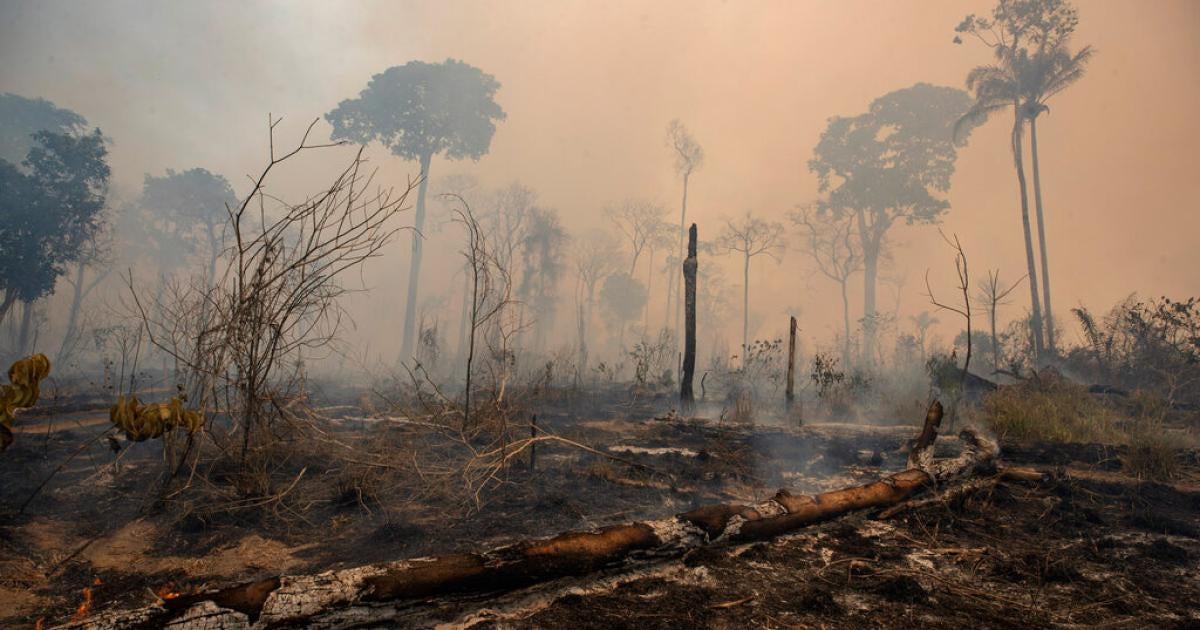If Brazil Wants to Join OECD, Protect Environmental Defenders

The world was outraged by the murders of the British journalist Dom Phillips and the Brazilian Indigenous affairs expert Bruno Pereira, who was removed from his job as point person for uncontacted tribes at FUNAI, the government’s Indigenous agency, soon after President Jair Bolsonaro took office. British parliament members called on then Prime Minister Boris Johnson to make the case a “diplomatic priority.” The United States government called for justice. And the United Nations Human Rights Office urged Brazil to strengthen the agencies responsible for protecting Indigenous people, their territories, and the environment. But Dom Phillips and Bruno Pereira are far from the first defenders of the Amazon to be murdered in Brazil’s Amazon. In 2021 alone, 28 people were killed in the Amazon in the context of conflicts over the use of land and resources, according to the grassroots organization Pastoral Land Commission. The problem of violence and impunity is much broader throughout the Amazon and has only gotten worse under President Jair Bolsonaro. The international community is taking notice.
The European Parliament, in a July 7 resolution, demanded that “the Brazilian authorities take immediate action to prevent human rights violations and protect environmental and indigenous defenders” It is also why the Organisation for Economic Co-operation and Development (OECD)—in a move that could have important ramifications for Brazil’s engagement in the world economy—insisted on fighting violence and impunity and protecting the rights of Indigenous people as core principles in the “roadmap” that Brazil must follow if it hopes to gain membership. The roadmap that the OECD adopted for Brazil stresses that it must “adopt and fully implement public policies in line with its climate goals, including reversing and halting biodiversity loss and deforestation as agreed during COP26”—the 2021 UN climate change conference in Glasgow—and take “effective actions to translate this on the ground.” It also reflects the commitment in Glasgow to “stopping and reversing biodiversity loss, deforestation and land degradation by 2030.” The OECD says that it will evaluate whether Brazil is “strengthening the capacity of environmental agencies,” “fighting impunity for violations of environmental laws,” and "encouraging civil society’s participation in [environmental enforcement] efforts” as part of its overall assessment of whether Brazil is fit to become a permanent member of the OECD. Finally, the OECD said that it will evaluate Brazil’s bid to join the group based on whether it is “respecting and enforcing the rights of indigenous peoples and local communities” and “ensuring that acts of violence and intimidation against environmental defenders are rigorously investigated.” The inclusion of these criteria reflects a crucial understanding that we can’t protect our rainforest without also protecting the people who are on the front lines of efforts to save it. The OECD’s decision to incorporate these issues follows more than two years of advocacy with member states and independent groups, including our own, to ensure that, as part of the accession process, the OECD insists that Brazil must protect the Amazon and its defenders. We have also worked in tandem with other organizations urging the OECD to ensure that the accession process strengthens democracy and anti-corruption efforts in Brazil. In a public letter co-authored with Transparency International, the World Wildlife Fund, and Amnesty International, we highlighted Brazilian policies and actions that are incompatible with the OECD’s guidelines on these issues crucial to strengthening the rule of law. Adhering to this roadmap will require Brazil to abandon President Bolsonaro’s disastrous environmental policies. Since taking office three years ago, the Bolsonaro administration has sabotaged environmental law enforcement agencies. It has sidelined civil society groups from policymaking. It has maintained a hostile stance toward Indigenous peoples, supporting legislative initiatives that would arbitrarily curtail their rights regarding their territories, which are among the best protected forests in the Amazon. And with no evidence, it has blamed small farmers, volunteer firefighters, Indigenous people, and environmental groups for Amazon destruction. Brazil’s Constitution recognizes Indigenous people’s right to “the lands they traditionally occupy.” Demarcation—and hence protection—of Indigenous territories is provided by presidential decree. With at least 240 requests for demarcation pending, President Bolsonaro has halted procedures and failed to establish any new territories. The administration’s policies have effectively given a green light to criminal networks—mafias—that are driving much of the Amazon’s deforestation.
The mafias physically attack and intimidate forest defenders, whether environmental enforcement agents, Indigenous communities, or other residents. Those responsible are almost never brought to justice. If Brazil continues its path of destruction through the rainforest, it risks torpedoing its bid for OECD membership. More important, it risks catastrophic consequences for the rights of forest defenders and Indigenous communities and for global efforts to avert the worst outcomes of the climate crisis. This article was originally published in Portuguese by Valor Econômico.
Read the full article at the original website
References:
- https://www.hrw.org/pt/news/2022/06/10/we-need-find-missing-journalist-rights-defender-brazils-amazon
- https://www.theguardian.com/world/2022/jun/15/deep-concern-over-fate-of-dom-phillips-in-brazil-says-boris-johnson
- https://www.bbc.com/portuguese/brasil-61830231?xtor=AL-73-%5Bpartner%5D-%5Bcorreiobraziliense.com.br%5D-%5Blink%5D-%5Bbrazil%5D-%5Bbizdev%5D-%5Bisapi%5D
- https://www.europarl.europa.eu/doceo/document/TA-9-2022-0292_EN.pdf
- https://www.oecd.org/latin-america/Roadmap-OECD-Accession-Process-brazil-EN.pdf
- https://ukcop26.org/glasgow-leaders-declaration-on-forests-and-land-use/
- https://www.hrw.org/pt/news/2022/04/19/letter-oecd-secretary-general-ambassadors-and-environmental-policy-committee
- https://www.hrw.org/news/2022/04/20/joint-letter-human-rights-watch-amnesty-international-wwf-and-transparency
- https://oglobo.globo.com/economia/noticia/2022/06/ocde-exige-que-candidatos-ao-bloco-apurem-violencia-contra-ativistas-ambientais-dificultando-acesso-do-brasil.ghtml
- https://www.hrw.org/news/2021/08/24/brazil-reject-anti-indigenous-rights-bill
- https://brasil.mongabay.com/2022/04/perda-florestal-na-amazonia-e-17-vezes-menor-em-terras-indigenas-que-em-areas-nao-protegidas/#:~:text=Idioma-,Perda%20florestal%20na%20Amaz%C3%B4nia%20%C3%A9%2017%20vezes%20menor%20em,que%20em%20%C3%A1reas%20n%C3%A3o%2.
- http://www.planalto.gov.br/ccivil_03/constituicao/constituicao.htm
- https://terrasindigenas.org.br/
- https://www.hrw.org/pt/report/2019/09/17/333519
